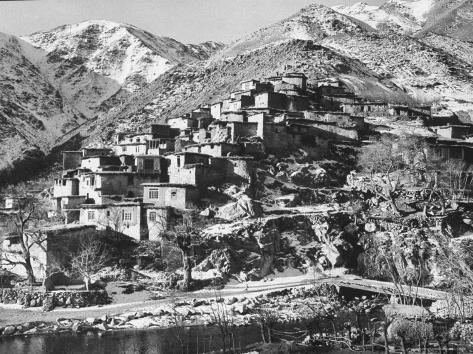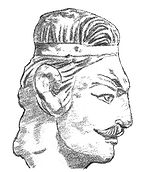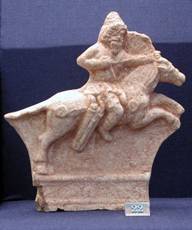Ai Orsa – The Hunt, A Saka Novel
“We were hunted by the hunted, who were hunted by the greatest of hunters. We were forced to leave our grazing lands, to leave the lands of our forefathers so we could promise our younger the opportunity to be able to ride freely, to sleep at night peacefully. Now we ride south in search of such a homeland. We are the children of the steppe and we have been hunted for too long. This is now our hunt. We shall become the predator after living as a herd of prey for too long.”
by Lil'Shah/Shahrasayr
“We were hunted by the hunted, who were hunted by the greatest of hunters. We were forced to leave our grazing lands, to leave the lands of our forefathers so we could promise our younger the opportunity to be able to ride freely, to sleep at night peacefully. Now we ride south in search of such a homeland. We are the children of the steppe and we have been hunted for too long. This is now our hunt. We shall become the predator after living as a herd of prey for too long.”
Mogha sat on his horse viewing the city in a distance. He stood there watching the hustle and bustle of the city go by, its walls being manned by men of Greek costume and dress. He just sat there, his horse munching on the luscious grass near the city. As he sat, another well decked Scythian horseman rode up from behind him, in a rush to inform him of something special. He whispered something in his ear, awaiting Mogha’s reply.
The man merely smirked, before turning his horse around and starting to make it canter away from the city. He was scared inside even though he tried not to show it. His invaders and hunters were coming and he had a feeling they too were running from something, though what it was he dared not dream.
He had to at least attempt to make a peaceful entry into home for his tribe. He needed less blood to be shed for he needed to keep his promise to his people. Yet if the need came, the Greek blood that would be shed would be nothing compared to the greater massacre the Saka would have to face.
************
“You mock us barbarian. You think after centuries of barbarism and raiding, we would let your filthy kind into our lands? You claim to lead tribes of Scythians and claim to be fleeing from some greater threat, yet I don’t give a damn who or what you are enemies are Maues. You shall not gain entry the lands of Eucratides, do you understand?” shouted the man in GreekMogha having picked up bits of the sentence due to his tuition by the sages in both dialects of Greek and many other languages. He was starting to lose his patience due to the incompetence of the man in front of him.
He could tell even the man’s lieutenants were not completely comfortable about the decisions he was making. He was trying to insult Mogha’s honour and heritage, the foolish, wine drunk pig he was.
Clenching his fists and leaning closer on the table and directly in front of the man’s face, he quietly said:
“Look yavana, I have had enough of your insolence. I came here with an offer of friendship, an offer that would have made people willingly people become your servants and loyally serve you and your lord Eucratides, who may I remind you is on his death bed, his sons conspiring to usurp each other.
It’s a shame, as I was raised to consider the realm of Eucratides as the greatest king and his realm as the most glorious one, yet I am now reminded by your behaviour and idiocy that these were foolish thoughts and war combined with bloodshed is the only way to get a message through to you yavanas. Our talks are over. I look forward to greeting you on the battle field and will save an arrow for you.”
With this Mogha marched out of the room, his entourage of various Saka chiefs in tow. He was now determined to get into lands further south, willing to do whatever it takes to lead the Saka that far south. His sheep could no longer feed of their old pastures and needed greener ones. And such land could be found in the hills of Sughd, in the kingdom of the Yavanas.
********************************************
Yes here I am, writing another TL even though I should be focusing on the Iron Pillar or Khybar Ghati but my interest in the Scythian tribes stops me. This novel dwells on the concept of the Indo-Scythian kingdoms and their culture, and what would happen if a surviving Greco-Indo-Scythian culture remains on the Indian sub-continent.
Sughd- Sogdiana or Sogdia
Yavana/s- Greeks, mainly referring to the ones of the Greco-Baktrian Kingdom here. Their falling apart, as the last great king Euacratides is dying
Last edited:






